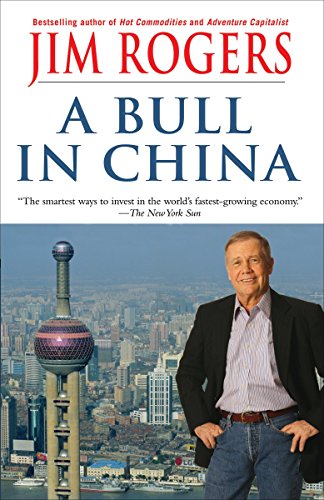 A Bull in China: Inves...
Best Price: $3.50
Buy New $9.57
(as of 11:55 UTC - Details)
A Bull in China: Inves...
Best Price: $3.50
Buy New $9.57
(as of 11:55 UTC - Details)
You are going to have to get used to the fact that you will have to spend a greater proportion of your income on food in the future — after decades of spending less.
That’s according to Joakim Helenius, chairman of Trigon Agri, an integrated soft commodities producer in the Ukraine and Russia. He believes that food inflation has only just started — and he is not alone.
Commodities perma-bull Jim Rogers thinks people should not buy shares — he says they should buy commodities instead, especially agricultural commodities.
"I can think of very few industries in the world where the fundamentals are getting better. But the fundamentals of commodities are getting better, full stop," Rogers told CNBC last month.
The price of most commodities has jumped significantly this year, as the global economy slowly stutters toward recovery.
Gains in oil and metals prices may not have much further to go but many believe that the situation with food is different.
Soybean futures have risen 48 percent since their low, with sugar futures rising 40 percent to three-year highs.
The Indian government is so concerned by developments that it has outlawed trading in any new sugar futures contracts until the end of this year.
The government obviously believes that speculation by investors was the source of recent price rises.
However, many argue that there are fundamental trends driving the increases. The rise in food prices is inevitable, they say. Helenius says there are long-term and short-term factors at play — and these factors have combined to create a bull market in soft commodities.
Over the long-term, the rising global population will be a fundamental driver of the rising price of food.
Last year, Ban Ki Moon, secretary general of the United Nations, predicted that world food production had to increase by half by 2030 to meet rising demand.
Then there is global warming. Dry places are getting dryer and wet places are getting wetter and this is playing havoc with farming.
Jim Rogers has taught finance at Columbia University’s business school and is a media commentator worldwide. He is the author of Adventure Capitalist and Investment Biker. See his website.





